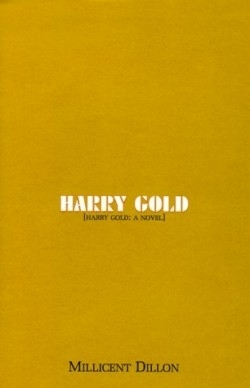Harry Gold
A Novel
Perhaps real-life spies, whose aliases and fictional facades camouflage their
inner lives, are themselves the unconscious novelists of our time, distilling from their actions a purer purpose, a more humane plot.
Harry Gold, in real life, was a nondescript American chemist recruited to be a low level courier for Soviet industrial spying; he colluded with Klaus Fuchs in his atomic espionage at Los Alamos, and was tried and convicted in 1951 for a term of thirty years. Harry Gold, in Dillon’s rather schematic rendering of his life (a poor section of Philadelphia, parents who were Russian immigrants) is a night-school striver, an accidental, almost inert electron captured by the casual, but irresistible valance of the new Russian. Gold is half Dostoevsky’s innocent fool, half John Le Carré’s George Smiley, a figure of pathos and near comedy, a podgy American in an anonymous raincoat. Dillon’s strategy, to render his story in the affectless present tense of a lonely fairy tale, at first seems almost simplistic till the very meagerness of Harry’s blinkered hopes begins to stir the reader’s sympathy. It is history from the viewpoint of the laboring worker ant.
Smiley was an English mastermind, a fictional character who brings down his Russian KGB alter-ego; Gold is anything but the cupbearer to those Cold War icons. A migrant shuffle of secret papers in a black leather bag, the almost banal rote of copying blueprints and handing them to foreigners in cheap cafes. By the time he pursues his contact, Klaus Fuchs, to Los Alamos, taking atomic secrets to Russia, the nimbus of the Russians exploding their own bomb hardly seems to be part of their own narrow world.
A critically well-received biographer of both Jane and Paul Bowles, in separate volumes, Dillon finds in the eerie Santa Fe landscape a powerful earth-moving tranquility and utter terror of nature unleashed. Skillfully, slowly, she bares their souls? secrets, Fuchs? haunted German past, Gold’s almost gormless blinkered earnestness to help out his fellow man. Stalin, Non-Aggression Pact, Franco, FBI, McCarthy-these words appear at intervals, like headlines, only the characters never seem to look up.
The final trial, with Gold meek to the end, only retells Gold’s résumé in high oratory. Better is the knowledge of how he served his term and worked on as a chemist whose students dedicated a Memorial Fund in his honor. A curiously affecting true tale of a man who became his own novel.
Reviewed by
Leeta Taylor
Disclosure: This article is not an endorsement, but a review. The publisher of this book provided free copies of the book to have their book reviewed by a professional reviewer. No fee was paid by the publisher for this review. Foreword Reviews only recommends books that we love. Foreword Magazine, Inc. is disclosing this in accordance with the Federal Trade Commission’s 16 CFR, Part 255.

